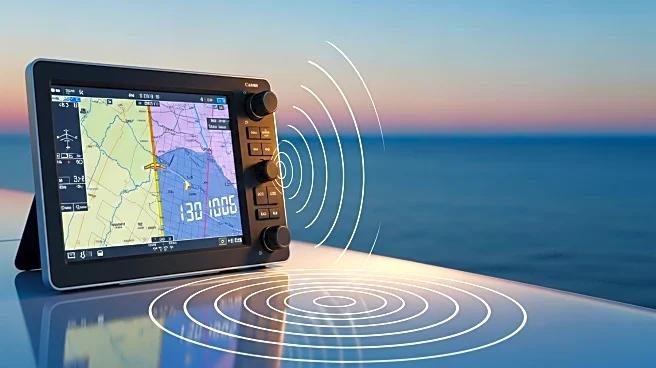What's Happening?
Sweden has accused Russia of being behind a surge in GPS jamming incidents over the Baltic Sea, affecting aviation and shipping. The Swedish Transport Agency (STA) reported a significant increase in disruptions, with 733 incidents recorded in 2025 compared to 55 in 2023. The interference has expanded geographically, impacting Swedish land and waters. The issue gained attention after a plane carrying European Commission President Ursula von der Leyen experienced telemetry disruption, allegedly due to Russian interference. The STA and other European nations have raised concerns with the International Civil Aviation Organization, urging Russia to cease the disturbances.
Why It's Important?
The rise in GPS jamming incidents poses a serious safety risk for civil aviation, potentially leading to navigation errors and increased collision risks. This situation underscores geopolitical tensions in the Baltic region, with accusations against Russia fitting into broader concerns about European security. The interference could affect international relations and prompt increased defense measures among European nations. Airlines operating in the region may face operational challenges, and there could be implications for trade and travel safety.
What's Next?
European nations are likely to continue diplomatic efforts to address the issue through international aviation bodies. There may be increased investment in alternative navigation technologies to mitigate the impact of GPS jamming. The situation could lead to heightened military readiness and surveillance in the Baltic region. Ongoing monitoring and reporting of incidents will be crucial to understanding the scope and impact of the jamming.
Beyond the Headlines
The GPS jamming incidents reflect broader geopolitical strategies, potentially aimed at destabilizing European security and sowing disorder. The situation raises ethical questions about the use of technology in warfare and the protection of civilian infrastructure. Long-term implications could include shifts in aviation safety protocols and international cooperation on cybersecurity and navigation technologies.










